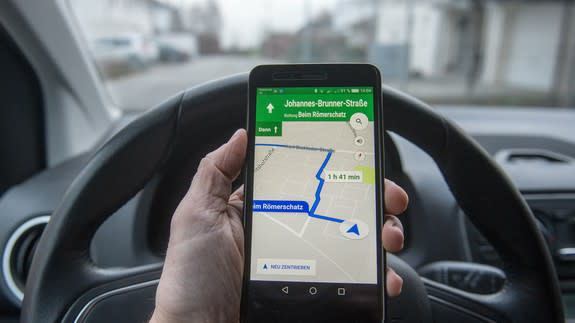Google Maps will soon get you where you need to go, then help you park

Nothing ruins a day out like driving to an unfamiliar part of town, finally finding that hole-in-the-wall restaurant you've been hearing so much about... and realizing there are no open parking spots even close to the joint. It's not the end of the world, but it certainly puts a damper on the fun.
With an upcoming feature rolled out with the latest beta version of Google Maps, however, your turn-by-turn directions will soon be able to guide you to the best places to park around your destination.
SEE ALSO: Uber wants to build a better map. Next stop? Australia.
The new feature, first spotted by Android Police, is included in the latest beta version of Maps, v9.44.0, which is available via APK Mirror download for devices running Android 4.3 and up.
When you search for driving directions, the parking availability status is included along with the standard time and distance estimates. The small "P" icon displays the chance you'll find an open spot in the immediate vicinity.

Image: google maps/screenshot
The probability of finding a spot is be deemed Easy, Medium or Limited.
For now, it looks like Google is depending on typical traffic patterns for the alerts rather than any actual location data (note how the image below uses the phrase "parking is usually limited"), so the app won't be pointing you directly to any wide open spots just yet.

Image: google maps/screengrab
As the feature is developed, though, it's not too outlandish to think it might someday give users more exact guidance to open spots. Google-owned Waze already has a similar function through a partnership with parking data company INRIX — but that's more focused on finding lots, rather than spots on the street.
When parking data is added to Google's existing user tracking features and its efforts to keep Maps accurate in real-time, the Parking feature could become even more focused. If it works, finding parking spots in the city will be a breeze — we'll just have to work on our parallel parking.

 Yahoo News
Yahoo News